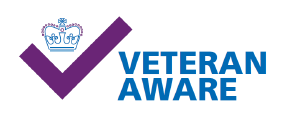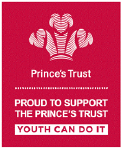Job summary
- Main area
- Healthcare Science
- Grade
- NHS AfC: Band 7
- Contract
- Permanent
- Hours
- Full time - 37.5 hours per week
- Job ref
- 321-SW-6160369-B7
- Employer
- Oxford University Hospitals NHS Foundation Trust
- Employer type
- NHS
- Site
- John Radcliffe
- Town
- Oxford
- Salary
- £43,742 - £50,056 per annum pro rata
- Salary period
- Yearly
- Closing
- 19/05/2024 23:59
Employer heading

Highly Specialised Healthcare Scientist/Practitioner
NHS AfC: Band 7
Oxford University Hospitals NHS Foundation Trust is one of the largest NHS teaching trusts in the country. It provides a wide range of general and specialist clinical services and is a base for medical education, training and research.
The Trust comprises of four hospitals - the John Radcliffe Hospital, Churchill Hospital and Nuffield Orthopaedic Centre in Headington and the Horton General Hospital in Banbury.
Our values, standards and behaviours define the quality of clinical care we offer and the professional relationships we make with our patients, colleagues and the wider community. We call this Delivering Compassionate Excellence and its focus is on our values of compassion, respect, learning, delivery, improvement and excellence. These values put patients at the heart of what we do and underpin the quality healthcare we would like for ourselves or a member of our family. Watch how we set out to deliver compassionate excellence via the OUH YouTube channel.
Many of our recruitment programmes use Value Based Interviewing to identify those who have the skills we seek, who share our values and who are able to deliver compassionate excellence from the outset. We know that this makes a significant difference to your job satisfaction and above all the outcomes and experience of our patients and their families. For more information about our Values and Value Based Interviewing please visit www.ouh.nhs.uk/about/vision-and-values
Job overview
We are welcoming applications for an exciting opportunity that has arisen for a well motivated and enthusiastic Highly Specialised Healthcare Scientist/Practitioner in the Department of Clinical Engineering and Measurement at the Oxford University Hospitals NHS Foundation Trust.
The purpose of this post is to support the Principal Clinical Scientist to apply engineering and scientific principles and knowledge to facilitate the effective operation of high quality Clinical Measurement services, in a range of areas across the Trust.
Services include providing physiological measurements of evoked potentials and sweat tests. As well as leading the technical and operational delivery of the blood gas measurement service, quality assurance, and supporting device training and calibration procedures across a number of device types.
This post also comes with management and business-related tasks to assist with the running of the Clinical Measurement Group and deliver services to other clinical staff and patients. They will also be involved in teaching and service development.
Main duties of the job
The post holder will be a member of an experienced team of practitioners who work collaberatively and independently to ensure high quality and safe patient care is delivered at all times. They will need to have a flexible approach to work and a high level of drive and ambition to help achieve organisational goals. Attention to detail and professional integrity is essential.
Main duties involve but are not limited to:
- Plan, perform and interpret multimodal evoked potential monitoring during spinal surgery.
- Perform routine maintenance of ABL90 blood gas analysers across the OUH Trust, rectify complex faults and ensure quality assurance standards are met.
- Manage finances and budget reports as well as contracts with external stakeholders
- Line manage, supervise and train staff
There will be opportunities for further training and development in the field of Clinical Science.
The Clinical Engineering and Measurement Group is involved in the support of all 48 blood gas analysers and approximately 55,000 other pieces of medical equipment across all OUH sites.
Working for our organisation
Oxford University Hospitals NHS Foundation Trust is one of the largest NHS teaching trusts in the country. It provides a wide range of general and specialist clinical services and is a base for medical education, training and research.
The Trust comprises four hospitals - the John Radcliffe Hospital, Churchill Hospital and Nuffield Orthopaedic Centre in Headington and the Horton General Hospital in Banbury.
Our values, standards and behaviours define the quality of clinical care we offer and the professional relationships we make with our patients, colleagues and the wider community. We call this Delivering Compassionate Excellence and its focus is on our values of compassion, respect, learning, delivery, improvement and excellence. These values put patients at the heart of what we do and underpin the quality healthcare we would like for ourselves or a member of our family. Watch how we set out to deliver compassionate excellence via the OUH YouTube channel.
Detailed job description and main responsibilities
Main Tasks and Responsibilities
1. Clinical and Scientific
- To maintain a high level of professional standards in the delivery of clinical measurement services, to perform routine work to ensure that the smooth and efficient running of the department and the provision of an effective and comprehensive service to the full range of patients served by the department.
- Work collaboratively with others internal and externally to the department or Trust, on a day to day basis to ensure service needs are met.
- Assist clinical areas with technical support and trouble shooting
- Participate in innovation and development of technology and processes for the progression and development of Clinical Measurement services
- Analyse data for the development of effective strategies for the management of medical devices
- Intra-operative monitoring
- To plan, perform and interpret multimodal evoked potential monitoring during spinal surgery to a high level of competence. This is a highly complex procedure involving direct patient contact and prolonged periods of concentration. Full responsibility is taken for interpreting the signals and for warning the surgeon of possible damage to the spinal cord.
- To work with the Principal Clinical Scientist and neurophysiology teams to introduce newer intra-operative monitoring techniques, to improve patient outcomes.
- To assist and supervise Clinical Measurement Staff while training in and undertaking intra-operative monitoring, providing advice and guidance as required.
- Assist in the development and evaluation of relevant protocols, guidelines and policies based on current evidence/research and facilitate/support other staff to do the same.
- Assist the development, implementation and updating of standard operating procedures and guidelines for intra-operative monitoring within the department, to support the delivery of an effective service.
- Blood gas analysis
- To perform routine maintenance of blood gas and electrolyte apparatus across the OUH Trust and other areas where the group has a service agreement.
- To use own judgement to diagnose and rectify complex faults on blood gas analysers and to provide planned preventative maintenance to these analysers.
- To regularly train small groups of medical and nursing staff on the correct and safe use of blood gas analysers including sample handling.
- To perform routine quality control and performance checks on patient applied equipment throughout the Oxford Hospitals and especially in Critical Care areas.
- Liaise with other clinical technologists/physiologists and service engineers over faults or problems with the equipment used in any part of the service and be aware of any subsequent changes in the operating procedure.
2. Managerial
- Prioritise own work in accordance with Trust and Departmental priorities and external demands.
- Meet expected results by using own initiative and following general principles and applicable regulations, standards and guidelines.
- To keep careful records of all work performed and complete other appropriate records.
- To be responsible for the efficient use of equipment and consumables within the department, so assisting budget control.
- Work collaboratively with the multi-disciplinary team and be responsible for the maintenance of effective channels of communication including departmental and team briefings as required.
- Assist in the provision of scientific, engineering and technical input to a number of departmental and Trust committees related to medical device management and point of care testing, writing reports or attending, when required.
- Assist in the production of policies and procedures to promote good practice in medical devices management throughout the OUH Foundation Trust.
- To manage projects as directed by the Head or Deputy Head of Clinical Engineering.
- To act as line manager to staff at lower grades as directed by the Principal Clinical Scientist or Head of Clinical Engineering and Measurement
- To participate in the development and maintenance of the Quality Management System and promote the adherence to it.
3. Teaching, Training and Research
- Identify appropriate R&D activity areas, both at a local and national (NHS) level. Identify and initiate projects within these areas under guidance.
- Present original work at local, national and international meetings and conferences, and in publications. Present seminars and feedback on meetings.
- To participate in the training and supervision of healthcare scientists working in Clinical Measurement.
- To deliver and lead training on equipment and protocols to nursing, medical, technical and scientific staff in an understandable way.
4. Professional
- Keep abreast of the latest technical and scientific developments and their applications in medical and associated fields.
- Enrol in Continuing Professional Development programmes in order that registration as a Clinical Scientist (statutory) or Technologist (voluntary) is maintained. To support the aims and objectives of the departmental CPD scheme, providing mentoring within the department and externally, as necessary.
- Attend suitable courses and seminars as part of CPD, to further the work of the department.
- Ensure all activities are carried out within a Quality framework, and meet regulatory requirements
5. General
- Ensure compliance with the policies and procedures in the areas of work for which the post holder caries responsibility. Participate in the development and routine operation of such procedures.
- Frequently use VDU equipment for periods up to the whole working day.
- Occasionally lift moderately heavy, cumbersome equipment for several short periods during a shift.
- The post holder will be required to work in operating theatres and intensive care units making measurements on critically ill patients.
- When working in operating theatres the post holder may be required to wear a lead apron for periods of up to 5 hours.
- When working in other departments, the post holder will liaise with local heads of department, medical consultants, superintendents and nursing staff, adhering to local policies and practices.
- The post holder will behave courteously and professionally at all times and seek to ensure that the highest level of service is provided by Clinical Engineering and Measurement.
- Work the hours necessary for the proper and efficient performance of the work, within the flexible working system set up in the department. In practice the post holder will occasionally be required to perform duties outside the normal working hours of the department.
- To take part in the departmental out of hours on-call rota.
- Be flexible and willing to assist all areas within Clinical Measurement, for example at times of sickness or increased workload.
- Perform other appropriate duties which may be required from time to time by the Principal Clinical Scientist, Head of Clinical Engineering or Director of Medical Physics and Clinical Engineering.
General Conditions
Risk Management
The management of risk is the responsibility of everyone and will be achieved within a progressive, honest and open environment.
Staff will be provided with the necessary education, training and support to enable them to meet this responsibility.
Staff should be familiar with the
- Major Incident Policy
- Fire Policy
- Information governance
and should make themselves familiar with the ‘local response’ plan and their role within that response.
Responsibilities for Health and Safety
The post holder is responsible for ensuring that all duties and responsibilities of this post are carried out in compliance with the Health & Safety at Work Act 1974, Statutory Regulations and Trust Policies and Procedures. This will be supported by the provision of training and specialist advice where required.
Infection Control
Infection Control is everyone’s responsibility. All staff, both clinical and non-clinical, are required to adhere to the Trusts’ Infection Prevention and Control Policies and make every effort to maintain high standards of infection control at all times thereby reducing the burden of Healthcare Associated Infections including MRSA.
All staff employed by OUH have the following key responsibilities:
- Staff must wash their hands or use alcohol gel on entry and exit from all clinical areas and/or between each patient contact.
- Staff members have a duty to attend mandatory infection control training provided for them by the Trust.
- Staff members who develop an infection (other than common colds and illness) that may be transmittable to patients have a duty to contact Occupational Health.
Child Protection
The post holder will endeavour at all times to uphold the rights of children and young people in accordance with the UN Convention Rights of the Child.
Safeguarding Children and Vulnerable Adults
The Trust is committed to safeguarding children and vulnerable adults throughout the organisation. As a member of the trust there is a duty to assist in protecting patients and their families from any form of harm when they are vulnerable.
Information Governance
All staff must complete annual information governance training. If you have a Trust email account this can be completed on-line, otherwise you must attend a classroom session. For further details, go to the Information Governance intranet site.
Data Quality
Data quality is a vital element of every member of staff’s job role. Oxford University Hospitals recognises the importance of information in the provision of patient care and in reporting on its performance. Data quality is therefore crucial in ensuring complete, timely and accurate information is available in support of patient care, clinical governance, performance management, service planning, and financial and resource planning and performance.
All staff should ensure that they have read and understood the Trust’s Data Quality Policy.
Person specification
Qualifications
Essential criteria
- Good (1st or 2nd class) Honours degree in a relevant subject
- Membership of a relevant professional body or able to submit for registration within 1 year
Desirable criteria
- Relevant MSc or higher degree
Experience
Essential criteria
- Highly developed specialist knowledge, underpinned by theoretical knowledge and relevant practical experience, in Clinical Engineering and/or physiological sciences for a broad range of equipment and procedures.
- Understanding of signal processing methods and techniques and practical experience of evoked potential measurement.
Desirable criteria
- Evidence of continuing professional development.
Personal Skills
Essential criteria
- Thorough understanding of patient and staff risks arising from the use of medical devices.
- Awareness of relevant legislation, national standards, professional and other guidelines including: ISO 9001:2015, other relevant BSI and ISO standards, professional and regulatory body reports and guidelines.
- Able to communicate highly complex information e.g. about patient examination options, equipment status or operation to other professional groups.
Desirable criteria
- Highly developed accuracy in placement of patient monitoring electrodes and ability to do this at speed and in adverse conditions (e.g. working under drapes in theatres)
Behaviours
Essential criteria
- Aligned to the Trust values
- Positive attitude to all tasks and stakeholders.
Technical
Essential criteria
- Computer literate with experience of working with Microsoft Office
Desirable criteria
- Able to use and adapt software solutions to meet the needs of the service
Applicant requirements
This post is subject to the Rehabilitation of Offenders Act 1974 (Exceptions) Order 1975 (Amendment) (England and Wales) Order 2020 and it will be necessary for a submission for Disclosure to be made to the Disclosure and Barring Service.
Documents to download
Further details / informal visits contact
- Name
- Louise Way
- Job title
- Principal Clinical Scientist
- Email address
- [email protected]
- Telephone number
- 01865 221642
List jobs with Oxford University Hospitals NHS Foundation Trust in Health Science Services or all sectors








